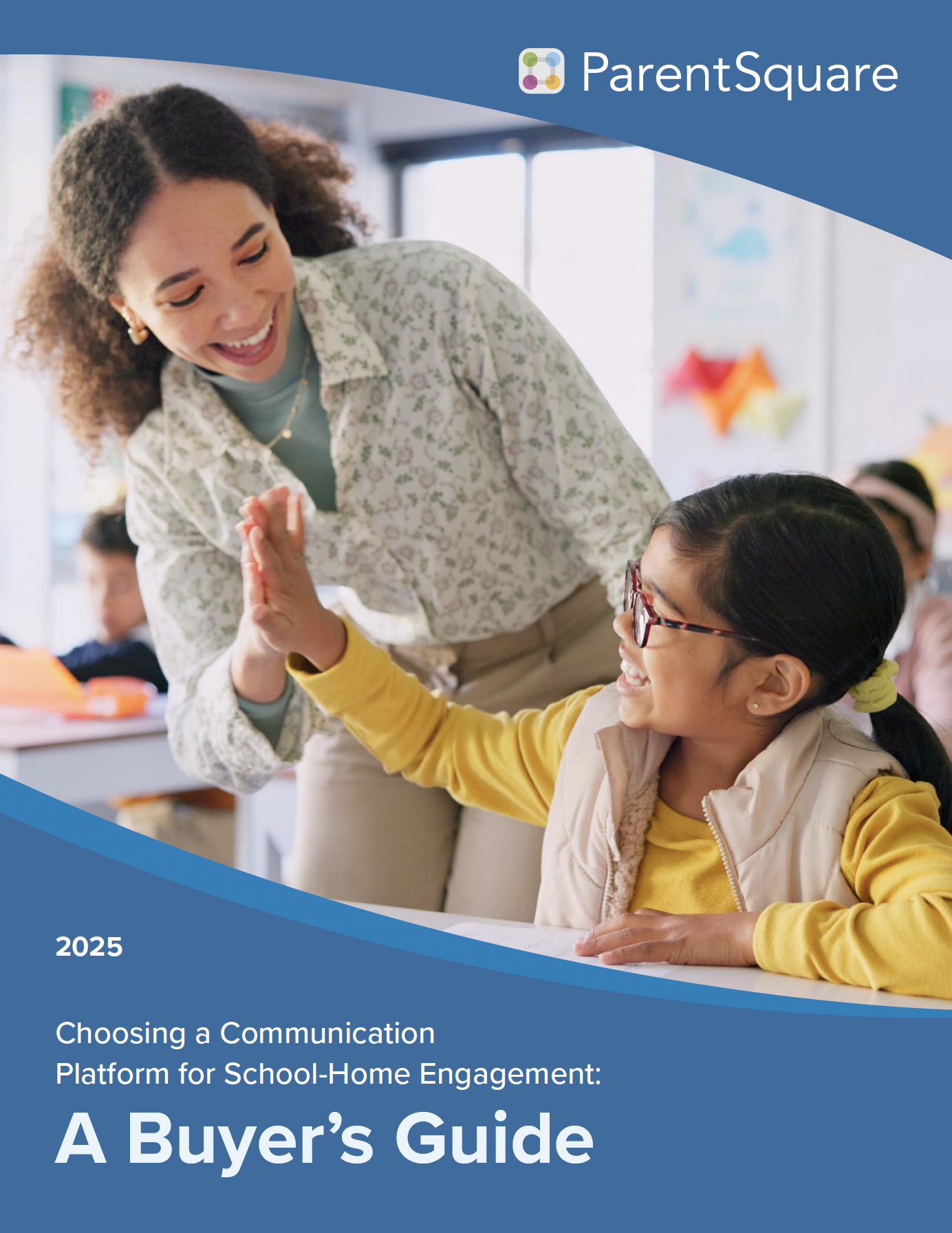This post originally appeared on our ParentSquare Learning Network blog on April 17, 2020.
Curated by Amy Keith at ParentSquare
As school closures remain in place, students are several weeks deep into remote learning. This time is the opportunity to address needs and concerns of students and their families as problems arise and remote learning becomes more commonplace.
How is remote learning working for students? Are they feeling well-adjusted or overwhelmed? Stressed or on top of their work? How can teachers be a resource to help students and their families in these challenging times?
On April 15th, we hosted a Twitter Chat moderated by Laura Spencer (@LSpencerEdD) to discuss how educators can best meet the needs of students and their families while working from home.
Below are some of the highlights from the chat. You can view the full chat here.
Q1: It’s Important To Help Kids Create Routines as They Ease Into Remote Learning. How Might We Support Students & Families During This Transition?
“Supporting families, for me, means sharing empathy. Each family’s reality is different, so one-size-fits-all models just don’t work well. Listen to them, seek feedback, respond to needs (to the best of your ability).” — Chris Quinn, @ChrisQuinn64
“We need to acknowledge that due to systemic inequities, not every family has the luxury of routine. We can support students and families by asking what their specific situations and needs are.” — Natasha Akery, @ladyakery
“Routines can be very helpful, as long as they also allow for some flexibility. Encouraged one of my HS Ss today in a Zoom session to try to get up at the same time daily, get dressed, and do things in a basic order. That will help her anxiety and stress.” — Laura Steinbrink, @SteinbrinkLaura
“Create schedules, remind Ss and Families to take time for Wellness, give choice learning opportunities, and give a sense of stability in these uncertain times. We are here for our Ss, relationships first. Do they have everything they need? Then comes the learning.” — David Hennel, @henneld_edu
“For these first couple weeks, I’m using a weekly skills-focused assignment with lots of choice, but the how/when remain the same. I’m using a class calendar hyperlinked to more details to keep everyone on the same page. A weekly Remind at noon on Monday’s too.” — Marisa Thompson, @MarisaEThompson
“Giving example schedules I think has been very helpful – Found quite a few that are posted here: http://blog.parentsquare.com/covid-19-tips/tip-9-help-families-set-up-daily-schedules-for-remote-learning” — Paula Cassin, @paulacassin
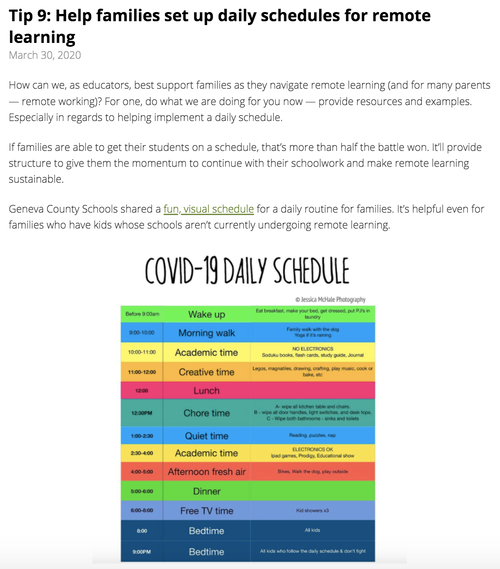
RESOURCE SHARED BY PAULA CASSIN, @PAULACASSIN
Q2: There Are a Lot of Creative Learning Experiences That Can Happen at Home, Like Cooking! What Are Some Enriching Learning Activities You Could Recommend Families Do at Home?
“We’re painting, cooking, baking, scavenger hunts, and writing stories. My kids love Mad Libs right now. We google their questions and watch Disney+ documentaries. We’re using our phone to make videos. We’re practicing conflict management often” — Marisa Thompson, @MarisaEThompson
“Some fun family learning activities…nature walks, chalk drawings outside, scavenger hunts around the house, board games, meals together, family reflections/prayer, sharing compliments, singing and dancing together.” — Chris Quinn, @ChrisQuinn64
“I want to start getting my pupils creating more mathematical models using cooking, making shapes with their families, probability games etc!” — Laura Staple, @stapeslr
“Check out the #SDGs Try to get Ss thinking about one and look into how they can make a change. What do they think the root cause is, how would they fix it? https://www.un.org/sustainabledevelopment/sustainable-development-goals/” — David Hennel, @henneld_edu

RESOURCE SHARED BY DAVID HENNEL, @HENNELD_EDU
“There are a ton of things to do as a family using @Buncee to create scrapbooks, recipe collections, write a story https://blog.buncee.com/keep-the-learning-going-remote-learning-with-buncee/…” — Rachelle Dene Poth, @Rdene915
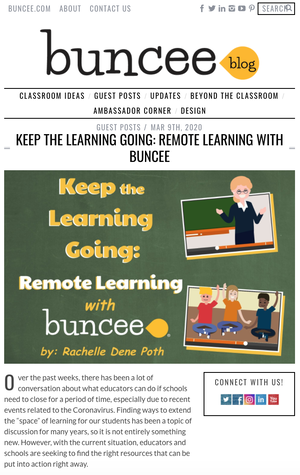
RESOURCE SHARED BY RACHELLE DENE POTH,
@RDENE915
Q3: How Can We Meet the Needs of Families Who Don’t Have Access To the Tools Required (i.e. Internet, Laptop, English Speaking Skills, Parent Support)? How Can We Support Families During This Transition?
“If we cannot provide what is needed to do it “our” way, then we need to meet families where they are. This is where differentiation actually means something because we have to take the time to find out what they have (or don’t) and how to make it work for them.” — Natasha Akery, @ladyakery
“Supporting families without tech access…offer choice boards that contain a balance of online options and hands on learning opportunities…so many simple resources to support literacy, math, science, inquiry, problem solving exist in so many homes.” — Chris Quinn, @ChrisQuinn64
“Provide alternatives to online lessons, help with getting connectivity through local resources, show understanding and compassion to the many difficult and sad circumstances that our students and families are facing.” — Luis Oliveira, @loliveira55
“We need to be able to provide parents notes to assist them in helping their children. Packets of lots of work with a reasonable amount of time to complete is helpful. Parents also may have other concerns, so giving students materials they can do on their own!” — Brittany Gibbons, @msbgibbons
“Our Ministry of Education is lending computers to families that would like one and if not they are sending work packages by mail if they want paper and pencil tasks.” — Linda Edwards, @LindaEdwardsi
“Reading: provide learning experiences that involve reading books, magazines, newspapers, or recipes – provide questions to ask . . . share games they can play (https://www.weareteachers.com/math-card-games/)” — Amy Moran, @amoran4
Q4: Families May Feel Isolated Right Now, When They Truly Need Support. How Can We Support the SEL Needs Families May Have, While Also Supporting Our Own Emotional Health?
“Supporting #SEL needs of families during this time of isolation can include: *providing food from the school *communication *being thoughtful in the amount of work & type of work sent home *using school SM to promote the awesome things going on at home” — Laura Steinbrink, @SteinbrinkLaura
“Mindfulness lessons — we write/journal as a class about mindfulness. Zoom yoga or meditation is fun. Just remind them in emails and snail mail cards how much you miss them.” — Chouinard Jahant, @ChouinardJahant
“A simple SMS convo or phone call goes a long way. It means a lot to parents when we reach out to them as well as our Ss. Parents need us, too. Just make sure to set boundaries (i.e. Google Voice, office hours, appointments)” — Natasha Akery, @ladyakery
“Our school created a Google Form. Teachers recorded every personal call made, and jotted down any areas of need. Our counselor and principal then followed up to get those needs met, as best they could. Takes a village, right?” — Laura Spencer, @LSpencerEdD
“Here are some links from @CommonSenseEd to help with #SEL #education #family https://www.commonsense.org/education/toolkit/social-emotional-learning” — Rachelle Dene Poth, @Rdene915
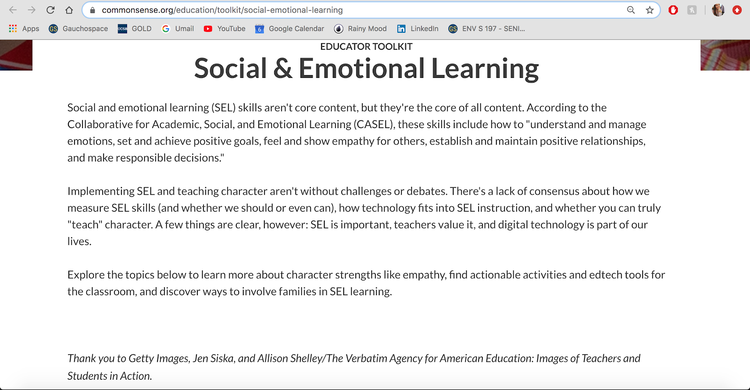
RESOURCE SHARED BY RACHELLE DENE POTH, @RDENE915
Q5: Teachers Undergo a Lot of Schooling and Training To Become a Teacher. Share Some Quick Tips, Strategies, or Tools for Parents Who May Be Feeling Overwhelmed by It All Right Now!
“When feeling overwhelmed, turn it all off. School is not first priority our health is. Parents don’t need our permission to forgo anything. If they reach out & say it’s too much, we need to respect that & lighten the load. We can also do that for ourselves.” — Melody McAllister, @mjmcalliwrites
“For tackling some of the technology problems I think it would help them to watch teacher created videos or YouTube videos for support” — Linda Edwards, @LindaEdwardsi
“Less is more. Day by day. Organizer and check list- brace for turbulence, it’s gonna be exhausting but ask Qs and smile. Family time is so important right now. Unplug and spend time with family that will help calm nerves” — Chouinard Jahant, @ChouinardJahant
“I just keep telling everyone to relax. The most important thing you can do for kids right now is to be present. Nothing school related will hold as much weight down the road as the conversations you have now about our current situation.” — Brandon Burns, @CoachBurnz
“I think it is important for Ts to know this is different too. Expectations must be curved, or you will overwhelm & lose the Ss. Pretend this is your first year Teaching, figure out how to connect with with them, focus on big concepts, let go of the little things” — David Hennel, @henneld_edu
“The To-Do boards that I blogged about on @ParentSquare have been a godsend. It drives the rhythms of our day. I was late to the chat because I was resetting ours! It’s been cool hearing from adults who have started using it for themselves. https://psln.parentsquare.com/blog/an-in-home-learning-strategy-for-busy-quarantine-families” — Andrew Easton, @EastonA1
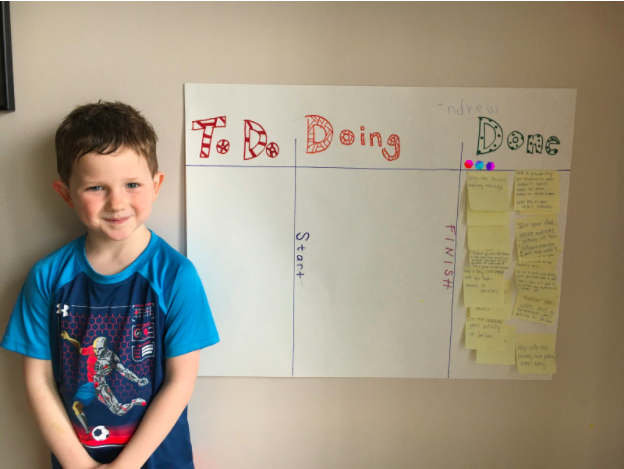
“It’s true, that is one of the things I loved about this post https://medium.com/@gross_75366/crisis-teaching-with-empathy-and-grace-891850a635a8 Give your students grace and give yourself grace, too. ‘We are all doing the best we can in the midst of chaos and uncertainty.’” — Rachelle Dene Poth, @Rdene915
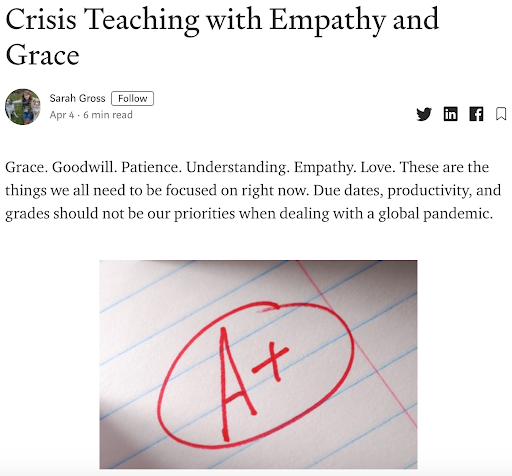
Thank you to all who shared their opinions, advice, and reflections for this Twitter Chat!

